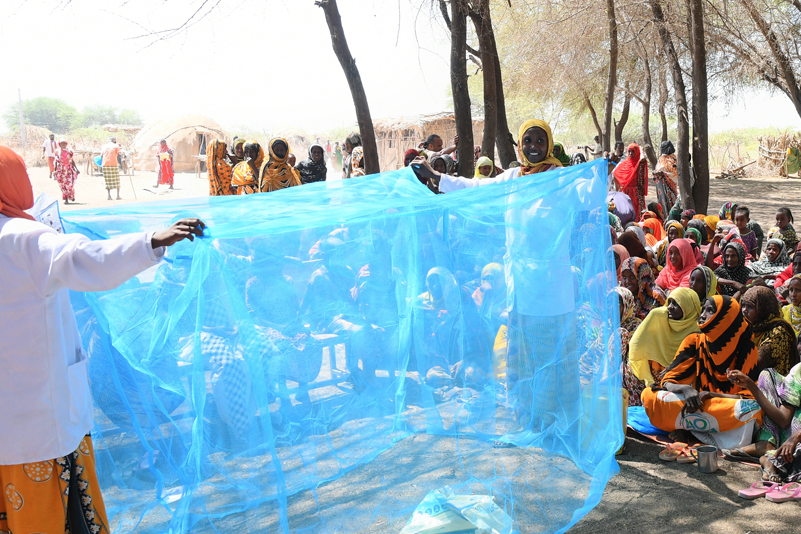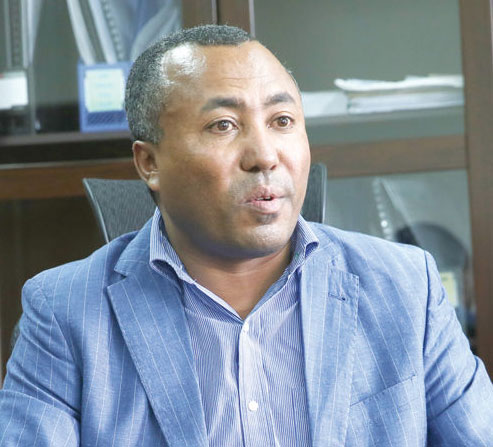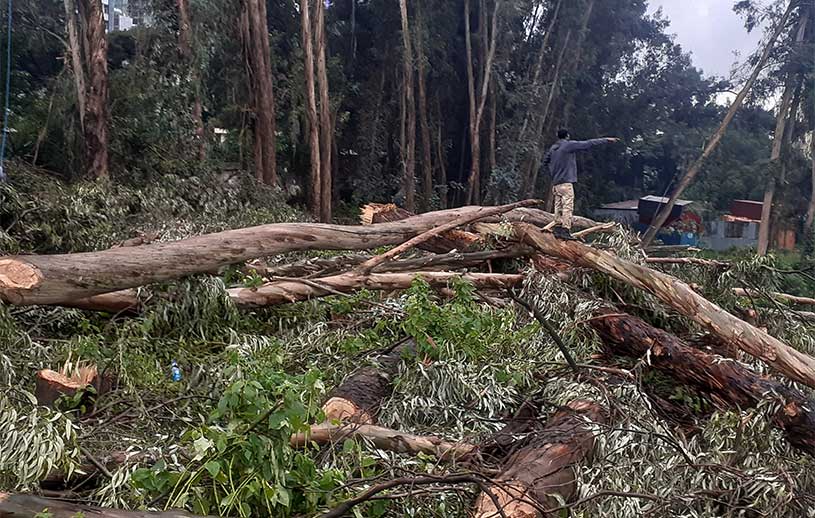
Radar | Sep 19,2020
Feb 29 , 2020
By ELIAS TEGEGNE ( FORTUNE STAFF WRITER )
 Procured with a donation from the USAID Global Health Supply Chain Program (GHSC) and the President's Malaria Initiative, a United States initiative to control and eliminate malaria, the nets are being distributed by the Ethiopian Pharmaceuticals Supply Agency.
Procured with a donation from the USAID Global Health Supply Chain Program (GHSC) and the President's Malaria Initiative, a United States initiative to control and eliminate malaria, the nets are being distributed by the Ethiopian Pharmaceuticals Supply Agency. The government has started distributing 3.1 million insecticide nets to residents in three regional states. The mosquito nets were procured for 187.3 million Br.
Procured with a donation from the USAID Global Health Supply Chain Program (GHSC) and the President's Malaria Initiative, a United States initiative to control and eliminate malaria, the nets are being distributed by the Ethiopian Pharmaceuticals Supply Agency.
The nets are stockpiled in 12 containers and are imported from China and India. The nets will be distributed through 20 branches of the Agency located all over the country. The Ministry of Health has set a quota for each regional state. The beneficiaries are 14 weredasin Gambella, 21 weredas of Benshangul, and 72 weredasof Southern Nations, Nationalities, & People's Region.
The Agency is distributing the nets, which will be used for three years, as a means of vector control to suppress the effects of mosquito infestation. It started distributing the nets in Segen, Wolayta, West Omo, Sheka and Gamo-Gofa zones of Southern Nations, Nationalities, & People's Region two weeks ago.
"We're working hard to provide the insecticide nets before the rainy season arrives in the areas where malaria outbreak is anticipated," said Ahmed Kedir, distribution and fleet management director at the Agency, which distributes pharmaceuticals and medical supplies purchased locally and from overseas.
There are about five to six million annual confirmed malaria cases in Ethiopia. The country is vulnerable to the disease - 75pc of the land and 60pc of the population are exposed. Plasmodiumfalciparumand Plasmodiumvivaxare the most common types of malaria that occur in the country.
The Ministry of Health estimates that there are about 12 million suspected cases of malaria in the country every year.
In the last fiscal year, the Agency, which has undergone several restructurings since it was first established in 1947, distributed 10.3 million nets to Oromia and Amhara regional states that were purchased at a cost of 576 million Br by the Global Fund.
The current project is supported by funding from the US President’s Malaria Initiative (PMI). GHSC purchases and delivers health commodities, strengthens national supply chain systems and provides global supply chain leadership to ensure lifesaving health supplies reach those in need.
During the current fiscal year, the Agency has supplied 1,373 articles of standard pharmaceutical equipment to 359 hospitals, 3,800 clinics and health hubs, 4,159 health centres and more than 14,000 health posts. In the last fiscal year, it distributed vaccines and family planning pharmaceuticals worth two billion Birr.
Henok Zewdu (MD), a lecturer at Debre Tabor University College of Medicine and Health Science, appreciates the early distribution of the nets, saying that it indicates the level of precaution being taken by the government.
The distribution of the nets has to be accompanied with instructions on how to use them effectively and keep them safe for the intended period, according to Henok.
“Parallel to the distribution of the insecticide nets, draining places with stagnant water and giving a memorable lesson to the entire community are the basic measures that reduce the spread of the disease,” said Henock.
PUBLISHED ON
Feb 29,2020 [ VOL
20 , NO
1035]

Radar | Sep 19,2020

Fortune News | Jun 07,2020

Radar | Jan 07,2022

Fortune News | Mar 20,2021

Fortune News | Mar 28,2020

Radar | Dec 25,2018

Fortune News | Apr 10,2021

Fortune News | Apr 08,2023

Fortune News | Aug 17,2019

Radar | Feb 09,2019

Dec 22 , 2024 . By TIZITA SHEWAFERAW
Charged with transforming colossal state-owned enterprises into modern and competitiv...

Aug 18 , 2024 . By AKSAH ITALO
Although predictable Yonas Zerihun's job in the ride-hailing service is not immune to...

Jul 28 , 2024 . By TIZITA SHEWAFERAW
Unhabitual, perhaps too many, Samuel Gebreyohannes, 38, used to occasionally enjoy a couple of beers at breakfast. However, he recently swit...

Jul 13 , 2024 . By AKSAH ITALO
Investors who rely on tractors, trucks, and field vehicles for commuting, transporting commodities, and f...

Jul 12 , 2025
Political leaders and their policy advisors often promise great leaps forward, yet th...

Jul 5 , 2025
Six years ago, Ethiopia was the darling of international liberal commentators. A year...

Jun 28 , 2025
Meseret Damtie, the assertive auditor general, has never been shy about naming names...

Jun 21 , 2025
A well-worn adage says, “Budget is not destiny, but it is direction.” Examining t...